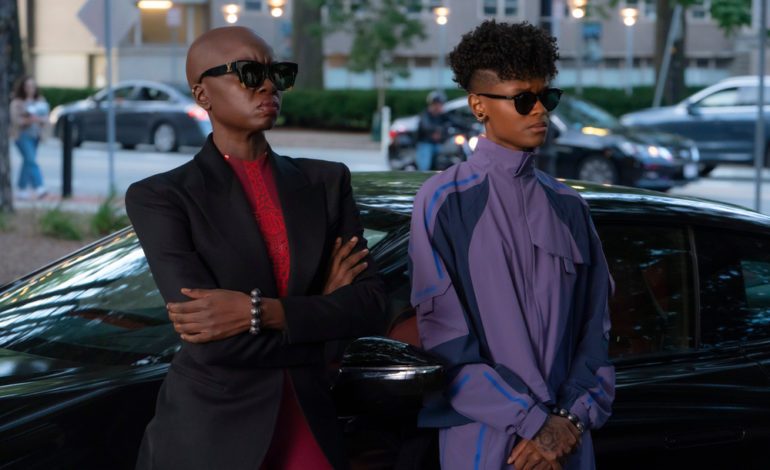

The old cliché goes, “Heavy is the head that wears the crown.” The new film from Marvel Studios Black Panther: Wakanda Forever is a story steeped in that age-old adage. By now, everyone is painfully aware of how Marvel’s breakout star Chadwick Boseman who played the titular Black Panther character tragically passed away after a very private bout with cancer in mid 2020. It has now been revealed how writer/director Ryan Coogler had gone as far as having a first draft of the script for this movie completed and had offered Boseman a chance to read it just prior to Boseman’s death. Almost no one outside of Boseman’s family was aware of his illness or how severe his condition was. So clearly, the vast majority of whatever was planned had to be redone for this sequel to the original, massively successful original Black Panther. With the world already reeling from the grip of the early phase of the COVID-19 pandemic, Boseman’s passing was shocking, his career in ascendency, his superstardom totally assured. After a long period of grief, the juggernaut Marvel Studios had to proceed and continue the beloved story of Wakanda, the nation that Boseman’s character T’challa was king of. Boseman’s performance casts a long, tall shadow over everything that happens in Black Panther: Wakanda Forever. The randomness of Boseman’s passing is echoed in the opening moments of Wakanda Forever as T’Challa tragically passes from an almost unnamed condition. Every character is forced to reckon—painfully–with the seemingly perfect king being snatched away out of nowhere.
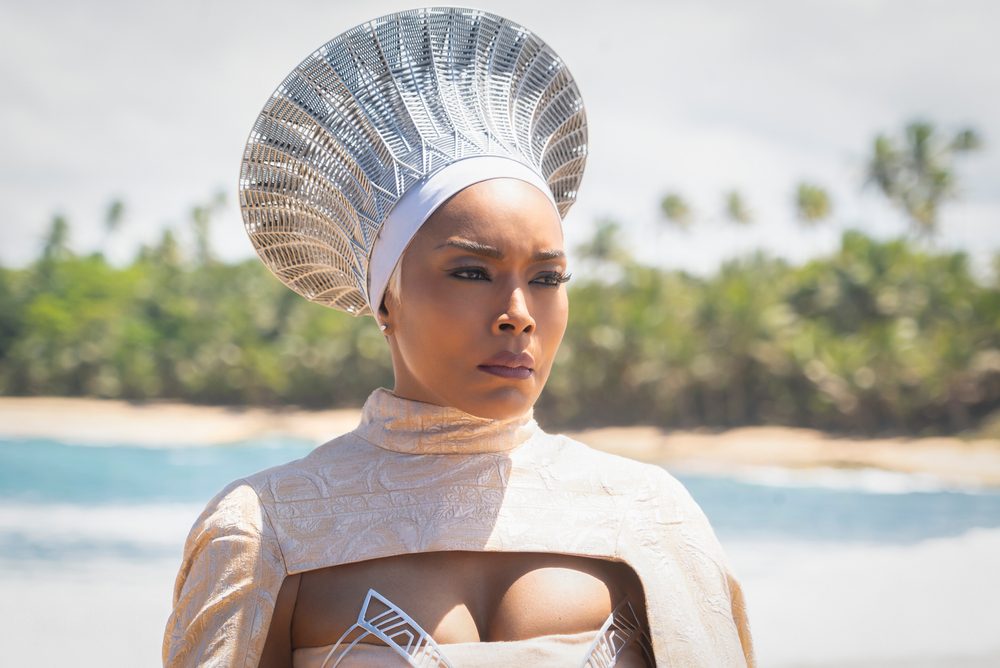

On one level, the film is a sermon on a mother’s grief as the ever brilliant Angela Bassett delivers one of her finest performances yet as the former Queen Consort Ramonda grapples with the notion that she has now lost both her husband and son, just as the threats of the world start to encircle their once peaceful nation. Where T’Challa ended the first Black Panther film with a statement hinting at the folly of Donald Trump’s notion of nationalistic protectionism, “But in times of crisis, the wise build bridges, while the foolish build barriers. We must find a way to look after one another as if we were one single tribe,” Ramonda vows to huddle back and protect her great nation as the whole world would happily use everything it possesses for nefarious, insidious and warhawk purposes.
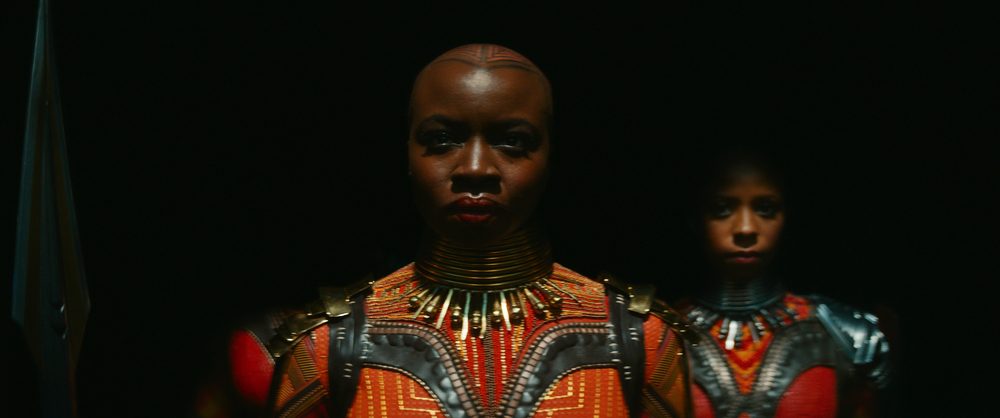

Danai Gurira’s Okoye has lost her leader and the sense that her unparalleled skill as general of Wakanda’s armies isn’t enough to keep the nation safe. Winston Duke’s M’Baku is learning how his superior strength and aggression may not always be enough to get the job done. Even newcomer Aneka (portrayed by Michaela Cole) has to reckon with how her headstrong vision may need to be tempered to best protect the ones she loves. Lupita Nyong’o’s Nakia has fully removed herself from Wakanda to head up a school in Haiti.
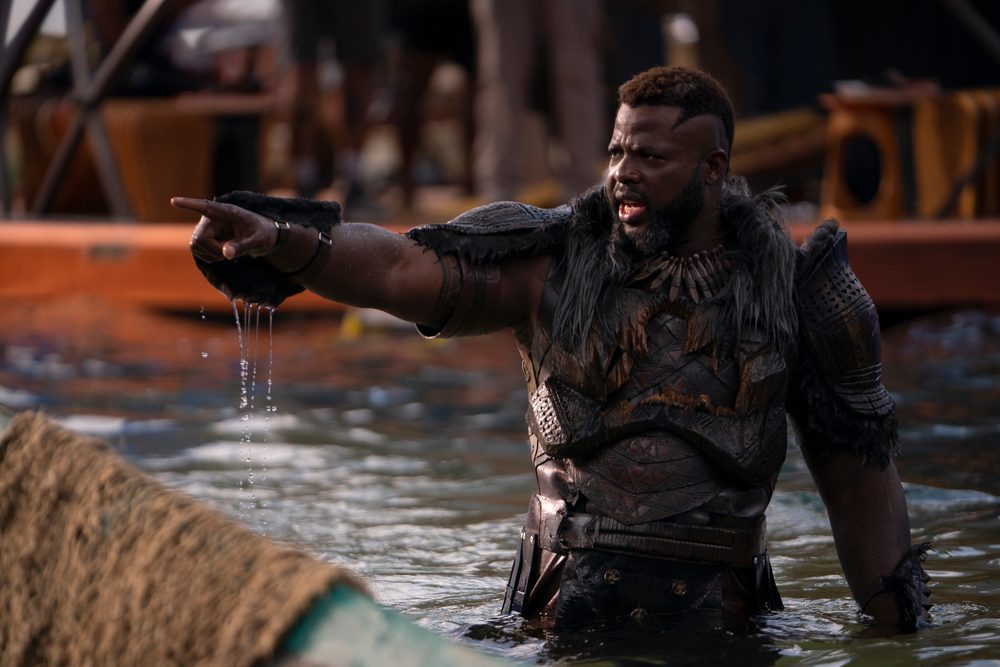

But it’s Letitia Wright’s character Shuri that has to carry all of the weight of T’Challa’s passing most directly. She has a survivor’s guilt all her own for being bestowed with such genius that falls painfully short of saving her beloved brother. She feels an inherent disappointment in the world at large that fills her with rage, deservedly so, but may not benefit the long-term goals of her country. She has to reckon directly with the film’s antagonist, the seemingly unstoppable Namor (Tenoch Huerta) of the underwater nation of Talokan, first politically and cerebrally and then ultimately physically. Much like leading a real nation in our world, the right choice for the betterment of the people is rarely an obvious one. Not only does she have to apply her intellect to give Wakanda an advantage in the film’s great conflict, but she has to find a courage and confidence within herself to help lead the country through the incredible crisis it faces in this story. It’s an immense responsibility for any actor to display the depth and complexity this part requires, and it’s fair to say that Wright pulls it off, but only barely. There’s so much to this role that any actor shy of someone as skilled as Chadwick Boseman would struggle to render this effectively.
All in all, the film is a worthy big-budget AAA feature. Ryan Coogler aims for the grandeur and spectacle that James Cameron is famous for and brings it all together admirably. There is a continuity at play in Wakanda Forever that few directors could hope to achieve in any configuration, under any budget. Everything feels perfectly cut from the same swath, as the pride in Wakanda’s excellence is balanced over the unfairness of the world and the gripping sorrow over such a vital life lost. More than that, this film must have been jaw droppingly expensive to make as there’s never a moment where the imagery feels anything less than gorgeously real. Practically nothing in the film actually exists, so everything is elaborate CGI, but it’s so well drawn, animated and composited, it never for an instant feels fake. Even when the viewer finally gets a short thrill ride through the Atlantean underwater nation of Talokan about halfway through the movie.
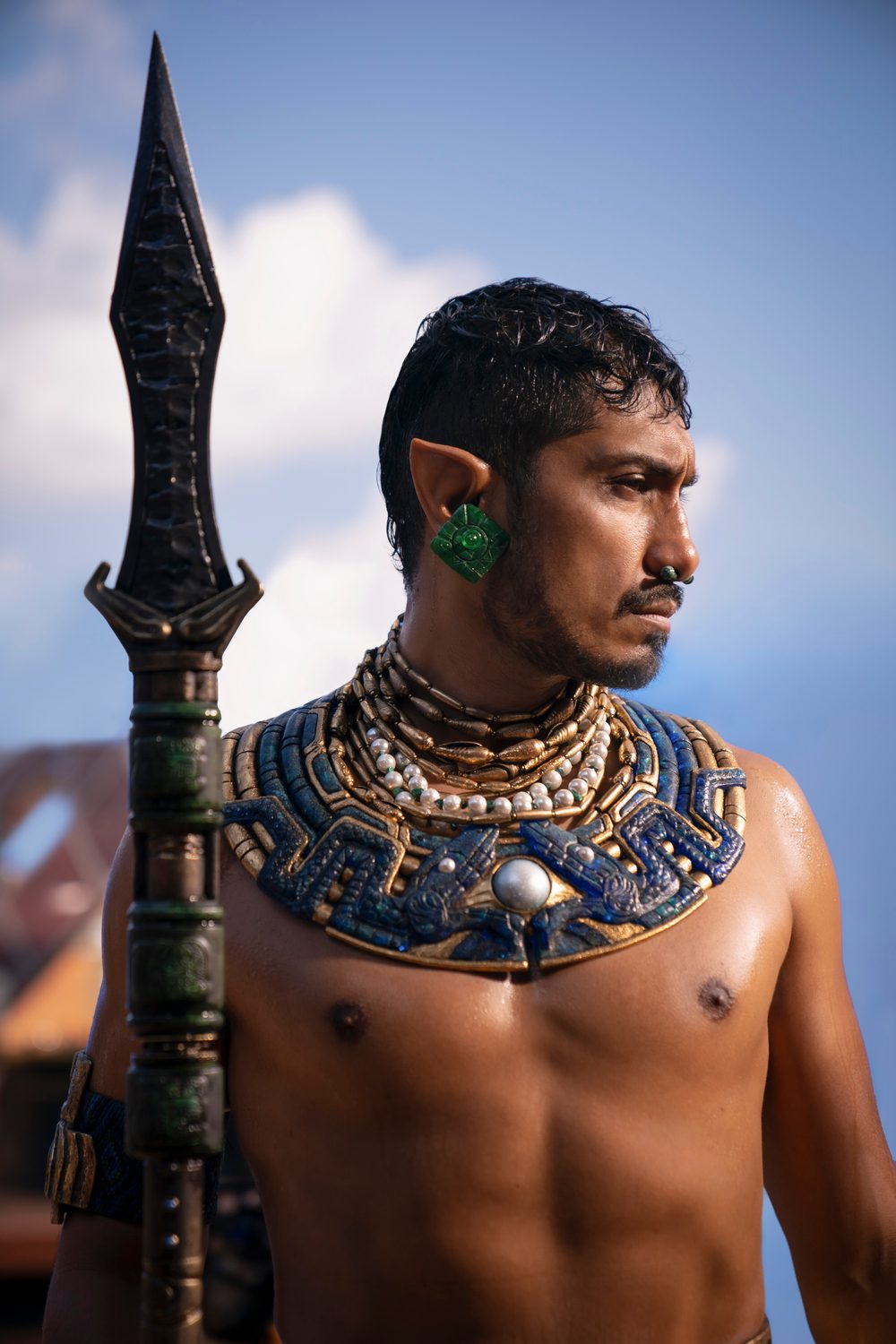

Newcomer to the MCU Dominique Thorne makes her debut here as the beloved modern-age-era hero Riri Williams / Ironheart and thankfully, her inclusion is pivotal to the story’s plot, rather than another superhero crammed into a movie already bursting top-tier talent. The aforementioned Huerta does an excellent job bringing an overbearing, ominous Namor to life, this is doubly impressive considering he plays a character in green swimming trunks with tiny wings on his feet. He’s almost as strong as the Hulk and almost as fast as Quicksilver. This could have been a laughable mess, but Huerta pulls this off with intimidating malevolence, all while jumping between English, Spanish and a branch of the Aztec Mayan language. Fun fact for younger readers: Namor is one of the oldest superhero characters Marvel can lay claim to along with the Human Torch and Captain America as he first debuted in Marvel Comics #1 in 1939.
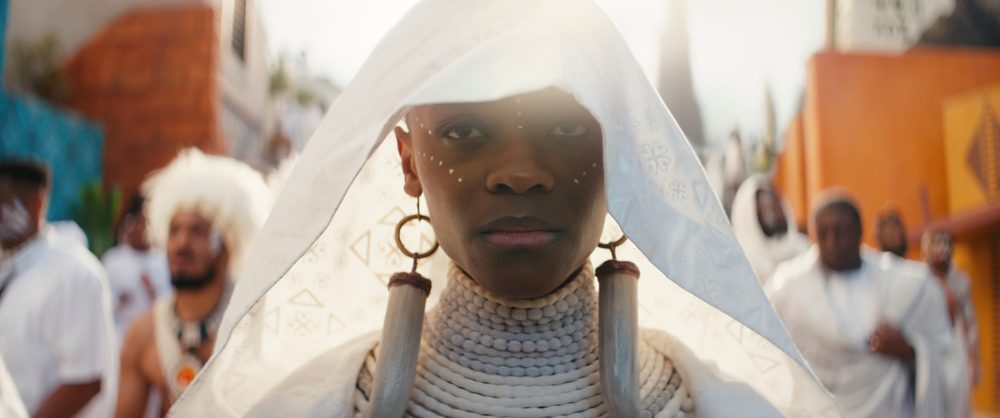

Score: 5 out of 5
The initial Black Panther film was a long overdue mark for inclusivity and a testament to black excellence worldwide, something prior to its 2018 was seen too little and too seldomly on screen. Black Panther: Wakanda Forever finds itself releasing at the pinnacle point of our world broken and in tatters following the COVID-19 pandemic and catastrophe after catastrophe after catastrophe. Things are uncertain now, perhaps more than anyone in our lifetime feared possible. This movie echoes that uncertainty, but most importantly angles towards the processing of the grief of what has been lost, who has been lost, and how we go forward from here.
